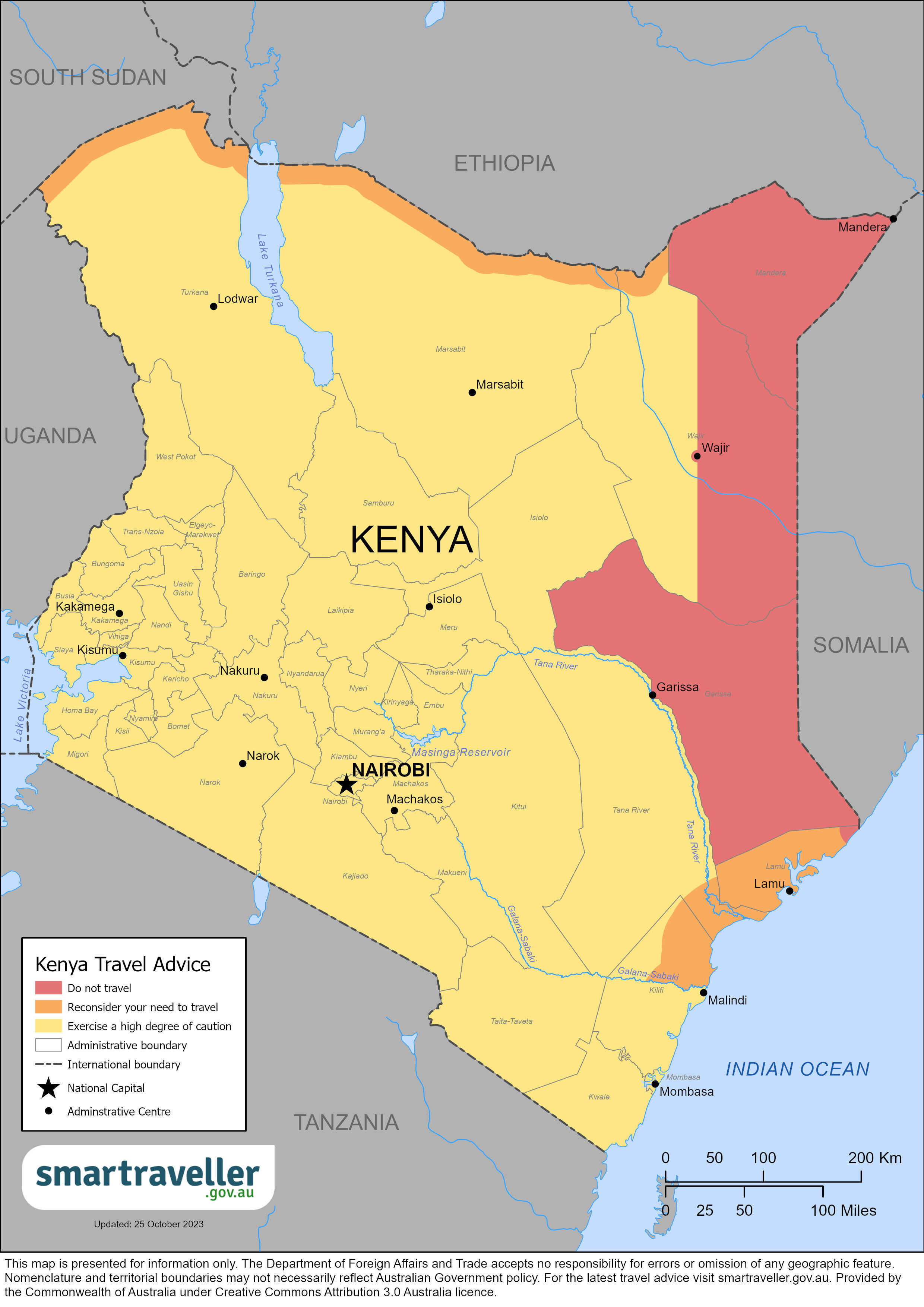Crime is high in Kenya and increases during holiday periods.
Incidents of armed robbery, carjacking, kidnapping and muggings are possible in:
- Nairobi and other urban centres (e.g. Mombasa)
- some coastal regions, including all of Lamu County, and areas of Tana River and Kilifi Counties
- North Eastern region (Mandera, Wajir and Garissa counties)
- Some parts of North Rift and Central Rift regions (Turkana, West Pokot, Elgeyo Marakwet, Baringo, Laikipia and Samburu counties)
Petty crime
Thieves snatch jewellery and bags from open vehicle windows, most often while cars are stopped at traffic lights or in heavy traffic.
Groups of bag-snatchers and carjackers on motorbikes target pedestrians and motorists.
Robberies also occur on trains and buses.
To protect yourself from theft:
- always keep vehicle doors locked, windows up and valuables out of sight, even when moving
- secure your accommodation, even when you’re in it
- avoid walking after dark
- avoid walking in isolated back-alleys and lanes.
Violent crime
Violent crimes include:
- armed carjackings
- kidnapping
- home invasions
Foreigners have been targeted in private homes in Nairobi, tourist areas and while travelling by road. Several incidents have occurred at night outside residential security gates.
Violent crime is particularly common in the Nairobi suburbs of Eastleigh and Kibera. Take extra precautions in these areas.
If you’re living in Kenya, invest in strong personal security measures. Regularly review your personal security arrangements.
Do not physically resist any robbery attempt.
Police regularly confront criminal suspects in public places. Random gunfire has killed or wounded bystanders in crowded areas.
Due to widespread HIV/AIDS, if you’re a victim of violent crime such as rape, visit a doctor immediately.
Food and drink spiking
Some criminals target foreigners with food and drink spiking. Their motivations can be for assault, including sexual assault, and theft.
To protect yourself:
- never leave food or drinks unattended or in the care of strangers
- be wary of accepting snacks, beverages, gum or cigarettes from new acquaintances
More information:
Crime in outlying areas
Incidents involving banditry and cattle rustling can occur in North and Central Rift regions (Turkana, West Pokot, Elgeyo Marakwet, Baringo, Laikipia and Samburu counties).
Clashes between local groups have occurred in the Mount Elgon region in western Uganda.
The region bordering Somalia is extremely dangerous.
Curfews and security operations can be instituted without prior notice in the North Rift and parts of Central Rift regions.
If you plan to travel to these areas get up-to-date advice on security and other conditions from your tour operator before you travel. Monitor the media for latest developments, maintain a high level of vigilance and leave restricted areas as soon as possible.
Scams and fraud
Scams are common. Criminals often use fake police, hotel, government and other identification to extort money from travellers.
To protect yourself:
- be wary of demands for money or personal information, including from people claiming to be police or officials. Always ask for and carefully check identification
- be wary of fake bank notes in circulation
Cyber security
You may be at risk of cyber-based threats during overseas travel to any country. Digital identity theft is a growing concern. Your devices and personal data can be compromised, especially if you’re connecting to Wi-Fi, using or connecting to shared or public computers, or to Bluetooth.
Social media can also be risky in destinations where there are social or political tensions, or laws that may seem unreasonable by Australian standards. Travellers have been arrested for things they have said on social media. Don’t comment on local or political events on your social media.
More information:

